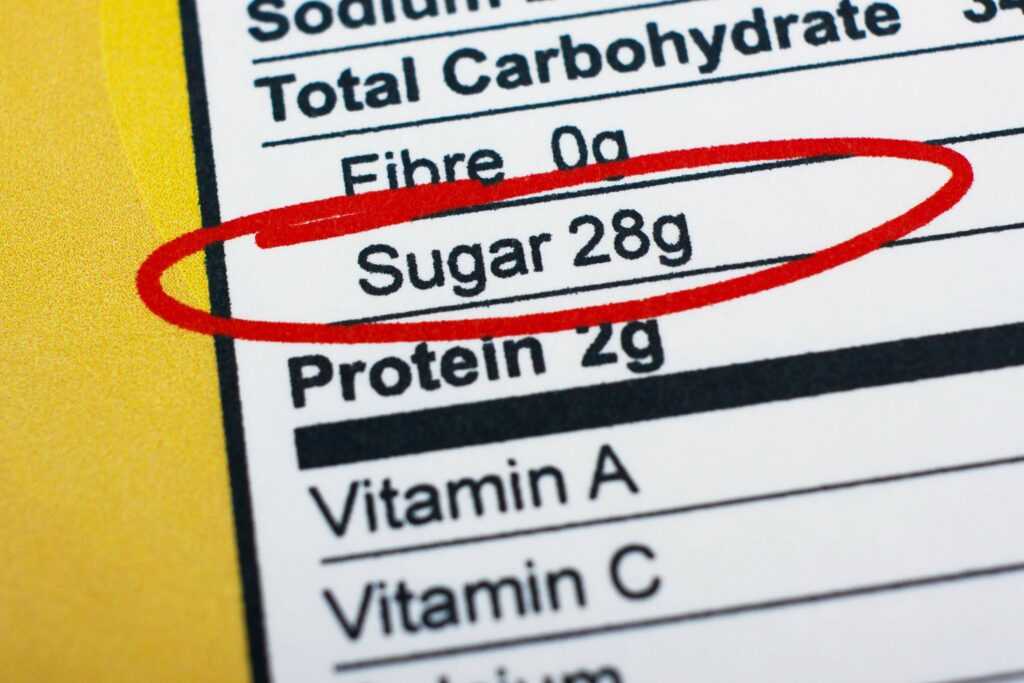Sugar in our Diet in 2024

By Award-winning, Atrium Associate Nutritionist, Nick Wall ANutr
Award Winning, AfN registered nutritionist, Nick Wall, is a top professional in his field and enjoys a healthy and sporting lifestyle. You can find him regularly in the gym as well as participating in many sports including football, cricket, golf, table tennis and skiing.
Nick has a Bachelor’s of Science degree in Sport and Exercise Physiology and, even more impressively, a Master’s Degree in Food and Nutritional Sciences. He has been practising for the past 10 years and has clients in 65 countries worldwide. He has been a nutritionist with Atrium HR Consulting since 2020.
He recently won the title of UKs Best Public Health Nutritionist at the 2023/24 Nutrition Graduate Awards, the most prestigious title in the professional setting. He also won Nutrition Specialist of the Year in 2020.

SUGAR IN OUR DIET IN 2024
In this article, I will discuss a few areas relating to sugar; what it is, sensible limits and good swaps we can make. It is important to remember we don’t have to completely eliminate sugar in our diets as balance, enjoyment and moderation are key to a healthy mindset around food, but there is a sensible amount to look out for most of the time.
Sugar is a carbohydrate, which is a source of energy our body needs. A key sugar in our body is glucose and our brain requires glucose to function. Glucose is formed when our body breaks down foods from carbohydrates such as bread, pasta and rice.
Sugar adds sweetness to foods and drinks, acts as a preservative and provides flavour, colour and texture.
There are many forms of sugar found in foods and drinks, including fructose, glucose, galactose, lactose, maltose, sucrose and glucose. These forms provide variable tastes and functionality.
The sugars we need to be mindful of are ‘free sugars’. The Scientific Advisory Committee on Nutrition’s definition of free sugars is ‘all monosaccharides and disaccharides added to foods by the manufacturer, cook or consumer, plus sugars naturally present in honey, syrups and unsweetened fruit juices.’ Accordingly, it is important to note that honey is also classed as a free sugar. Furthermore, under this definition, lactose (when naturally present in milk and milk products) is excluded’, and not classed as a free sugar.
Free sugars should not exceed more than 5% of total energy intake from the age of two upwards. Free sugars are those added to food and drink but not those found naturally in milk, fruit and vegetables. In the UK, the most common foods where sugar is added include drinks, cakes, biscuits and cereal products.
Sugar and Health
An increased sugar consumption is correlated with an increased energy intake and can have a negative impact on our health when consumed in excess. High sugar consumption is associated with obesity, metabolic disorders, diabetes, cardiovascular disease, cancer, depression, and cognitive impairment. Many studies have found a strong connection between sugar consumption and obesity and overall energy intake.
High sugar consumption may also impact our gut health and mood. Especially in western diets, high sugar consumption has been linked with inflammation, as sugary foods impact our dopamine release, thereby activating our brain’s reward pathways. Sugars in the diet also have an impact on oral health and 1 in 5 children have severe dental issues due to an excess of free sugars.
So How Much Sugar?
Adults should be consuming no more than 30g of free sugars per day, which equates to about 7 teaspoons or cubes.
Breakfast and Sugar
Breakfast provides us with a great opportunity to start our day well by consuming a variety of essential nutrients but, unfortunately, commercial breakfasts such as many cereals, pancakes, jams, yogurts, pastries and even porridges are often high in free sugars.
Solutions:
Flavouring your porridge oats, cereals and lower sugar varieties of yoghurts with fruits and nuts will mean that your breakfast is not only lower in added sugars but is also higher in essential vitamins/nutrients and fibre, is more gut friendly and much more satisfying to your hunger. Other breakfast options to help keep things varied that reduce any extreme added sugars are eggs, avocados and toast.

Ways to Reduce Sugar:
- Use fruit to naturally sweeten foods
- Half the amount of sugar in your recipes e.g., cakes and bakes add bananas/dried fruit instead
- Opt for water/sugar free drinks
- Limit unsweetened fruit juices/smoothies to no more than 150mls. Remember, one glass only counts towards one of your 5 a day
- Many pasta sauces and tinned products can contain a lot of added sugar. Opt for plain versions e.g. tinned tomatoes, reduced sugar beans-instead and keep an eye out for hidden sugars
- Read the food labels and choose products that are 5g or less of total sugars. For information, anything containing more than 22.5g of sugar is considered to be a high sugar food.
- When it comes to spreads such as jams and chocolate spread, try reduced sugar versions instead and be mindful of how much you use. Try adding fruit toppings such as banana with peanut butter. This way they can be enjoyed more regularly and in sensible amounts.
- Be mindful of the types of sugars e.g., white and brown; dextrose and molasses; fructose, sucrose, glucose, the sugars in honey, treacle, malt extract and all types of syrups including glucose syrup, glucose–fructose syrup, high-fructose corn syrup and rice malt syrup; sugars in all types of nectars e.g. coconut blossom nectar; date nectar and agave nectar. Whilst some of them may be more nutrient dense, they are all still a source of free sugar and break down in your body in the same way.
The take home from this article is to be label savvy when looking at sugars in products and to try to keep under the 30g/7tsp of added sugars per day most of the time. But remember that balance and moderation are key. It is not a case of all or nothing!
For more support on your nutrition or mental wellness, contact our qualified experts through your Atrium portal, 24/7.
REFERENCES
https://www.nutrition.org.uk/healthy-sustainable-diets/starchy-foods-sugar-and-fibre/sugar/
https://makingsenseofsugar.com/uk/healthy-eating/sugars-and-the-body/



